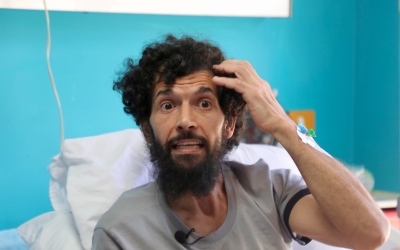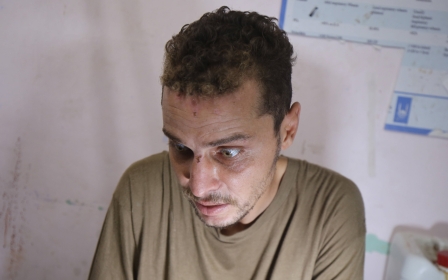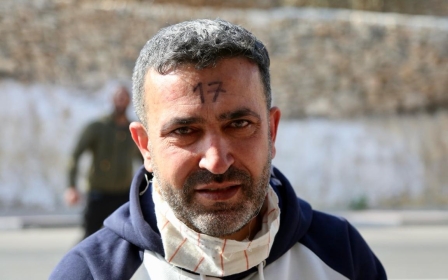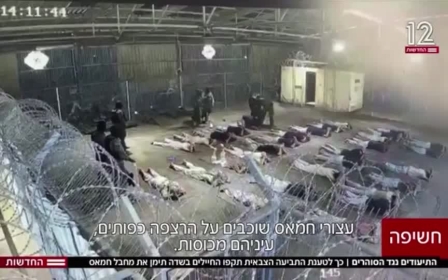Two Palestinians die in 'catastrophic conditions' in Israeli prison
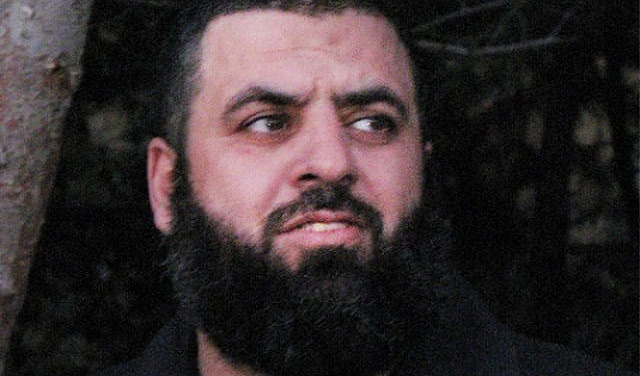
Two Palestinian monitoring groups have warned of "catastrophic conditions" in Israeli jails after the recent deaths of two prisoners.
In a joint statement, the Ministry of Detainees and Ex-Detainees Affairs and the Palestinian Prisoners Society announced on Friday the deaths of Samih Suleiman Muhammad Aliwi, 61, and Anwar Shaaban Muhammad Aslim, 44.
Aliwi, a Hamas leader from Nablus, reportedly died on 6 November, six days after he was transferred from Ayalon (Ramla) Prison clinic to Shamir Medical Center (Assaf Harofeh).
According to the statement from the monitors, one of which is a Palestinian Authority (PA) agency, the Israeli prison administration did not disclose details of his death despite an obligation to release such information.
Aliwi had been held under administrative detention since 21 October of last year despite his pre-existing health issues. Testimony received by his lawyer indicated that Aliwi was suffering from multiple health issues prior to his arrest and had been surgically operated on several times for a benign intestinal tumour.
New MEE newsletter: Jerusalem Dispatch
Sign up to get the latest insights and analysis on Israel-Palestine, alongside Turkey Unpacked and other MEE newsletters
The 61-year-old, who spent a total of about 10 years in Israeli prisons, was set to undergo another procedure in December of last year but was under arrest at the time, which exacerbated his condition.
“He was subjected, like many prisoners, to acts of torture and repeated attacks, especially during his transfer to the clinic," his lawyer said, adding that prison guards would "take him out to the clinic in chains and torture him" despite his poor health.
His lawyer also noted the lack of food received by prisoners, saying that Aliwi had lost 40kg by the time he was visited.
Meanwhile, Aslim, a father of four from Gaza, did not suffer from pre-existing health issues before his arrest, according to his family.
The two monitoring groups said that Aliwi and Aslim were subject to systematic abuse long practised in Israeli-run prisons, including torture, medical negligence and forced starvation.
The groups held Israel "fully responsible for the martyrdom of the two prisoners, Aliwi and Aslim".
The statement warns that since the start of Israel's war on Gaza, crimes against prisoners and detainees have been on the rise, adding that these "catastrophic conditions" faced by prisoners - particularly those who are sick and wounded - will result in many more deaths.
Crime against humanity
The abuse detailed in the statement matches dozens of testimonies given to Middle East Eye and other media outlets since the war started.
In early August, the Israeli rights group B'Tselem accused Israeli authorities of systematically abusing Palestinians in torture camps, subjecting them to severe violence and sexual assault.
Torture was recorded in civilian and military detention facilities across Israel, resulting in the deaths of at least 60 Palestinians while in Israeli custody in less than 10 months.
The systematic nature of the abuse across all facilities left “no room to doubt an organised, declared policy of the Israeli prison authorities”.
The report, titled “Welcome to Hell”, is based on 55 testimonies from former detainees from the Gaza Strip, the occupied West Bank, East Jerusalem and citizens of Israel, the overwhelming majority of whom were held without trial.
The Palestinian Prisoners Society reported that over 11,400 arrests have been made since the start of the war, excluding those detained in Gaza, where the numbers are estimated to be in the thousands.
More than 9,392 administrative detention orders have been issued during this time, ranging from new orders to renewals, including those against children and women.
The society's latest report detailed "detention campaigns carried out since 7 October", involving "humiliation, brutal beatings, threats against detainees and their families", as well as the destruction of detainees' houses and the looting of their property.
Middle East Eye delivers independent and unrivalled coverage and analysis of the Middle East, North Africa and beyond. To learn more about republishing this content and the associated fees, please fill out this form. More about MEE can be found here.



